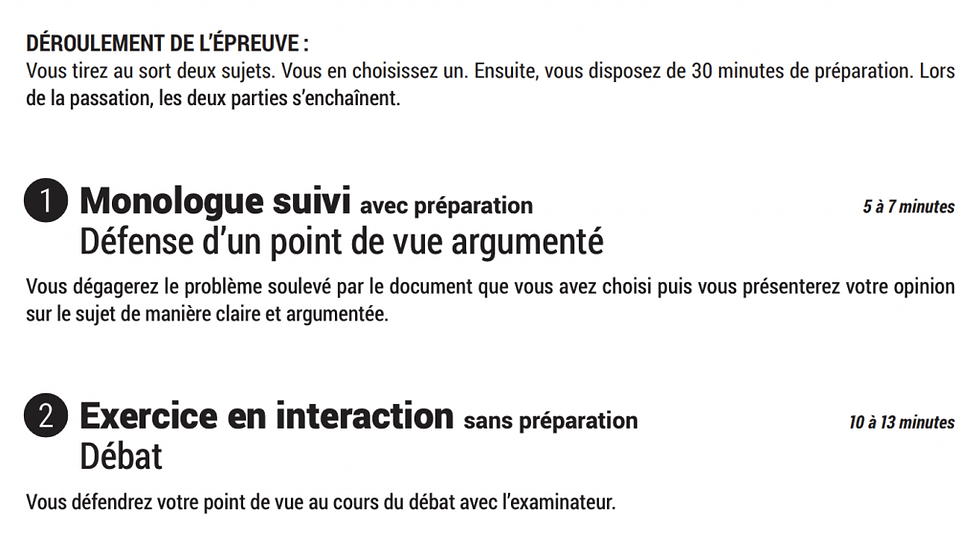DELF B2: how does it work and how to be prepared?
- Manon Dewitte
- Mar 18, 2023
- 3 min read
Updated: Oct 23, 2023
Pass the DELF B2 successfully!
The DELF – “Diplôme d’Études en Langue Française“ (levels A1 to B2) and the DALF – “Diplôme Approfondi de Langue Française“ (levels C1 and C2) are French certifications emitted by the French Ministry of Education. They are recognized in the whole world and don't have any expiration date (they are valid forever).
The levels are independent, which means that you don't need to pass the level B1 to take the level B2. The levels are defined by the CEFR (Common European Framework of Reference for languages).
To give you an idea: the level B1is required to get the French citizenship and levels B2 and C1 are required to enter a French university. Your skills certified by a DELF or DALF are an added value to your curriculum and offer you more interesting opportunities in French-speaking companies.
Look how the DELF B2 exam works and start preparing now to pass successfully!
Whats is DELF B2?
DELF and DALF are composed by 4 parts: listening, reading, writing and speaking.
The DELF B2 exam is intended to people able to:
- argument, give their opinion and talk about advantages and disadvantages of a situation
- talk about cause and conséquence
- convince someone
- correct autonomously their mistakes
- explain with their own words
- understand an article about a topical subject
How does DELF B2 work?
The exam is composed by 4 parts (3 collective et 1 individual).
Type | Durations | Points |
Listening | 30 min | 25 |
Reading | 1 heure | 25 |
Writing | 1 heure | 25 |
Speaking (individual part) | 20 minutes (+ 30 minutes of preparation) | 25 |
Minimum grade to pass: 50/100 Minimum grade required for each part: 5/25 | Total duration: 2h50 + 30 min of preparation | Maximum grade: 100 |
1. Listening
The listening part consists in a series of comprehension questions on two audio recording (interview, news, speech, radio programme…).
Since the March 2020 reform, you will just have to answer to Multiple Choice Questions (Questions à Choix Multiples / QCM): you have to select the correct answer and you're not asked to write anything.

2. Reading
You have one hour to answer questions about 2 written documents: an informative text and an argumentative text.
Since the March 2020 reform, this section also contains only Multiple Choice Questions.

3. Writing
During this 1 hour section, you will have to write a 250 word-argumentation (+/- 10%). Generally it's a formal letter such as letter of complaint, in which you defend your opinion about a topic. You also can be asked to write a short essay on a given problematic.
The objective is to show that you are able to argument.

4. Speaking
This is the only individual section. You will be given 2 short written documents, each one about a different topic. You pick one and defend your opinion about the subject you picked.
You have 30 minutes to prepare a 10 minute-presentation. When you've finished, the examiner asks you a few questions and you both have a conversation/debate for 5-10 minutes. The challenge is to show your capacity to argument, even though the examiner doesn't agree with you.

Know the exam to prepare better
Listen to our podcast episode dedicated to the DELF B2 exam. Find out more about the exam in the podcast episode dedicated to this subject. Having helped more than 120 students pass the DELF exam, I'd like to share with you my advice on how to prepare for the exam:
Read the transcript of the episode here.
To practice
You can find free DELF B2 examples with the corrections on the website France Education International.
I also recommend to buy this preparation book : Le DELF B2 100% réussite (Éditions Didier).
It is very detailed and complete, and gives precious advice!
It is easy to find on Amazon, in digital or paper format. Depending on the place you live in, you can maybe also find it in bookshops.
To go further
If you'd like some help with your French language project, join our online courses!
Our individual DELF B2 preparation courses are divided into several phases:
- presentation of the tests
- preparation for written and oral production during classes with the teacher
- simulation and correction of the written and oral comprehension tests
- analysis of the correction grid to know exactly what the examiner expects of you.
You can also email us at bonjour@frenchcoffeebreak.com to explain your project in French. We'll work with you to find the best solution!
.png)

Comentários